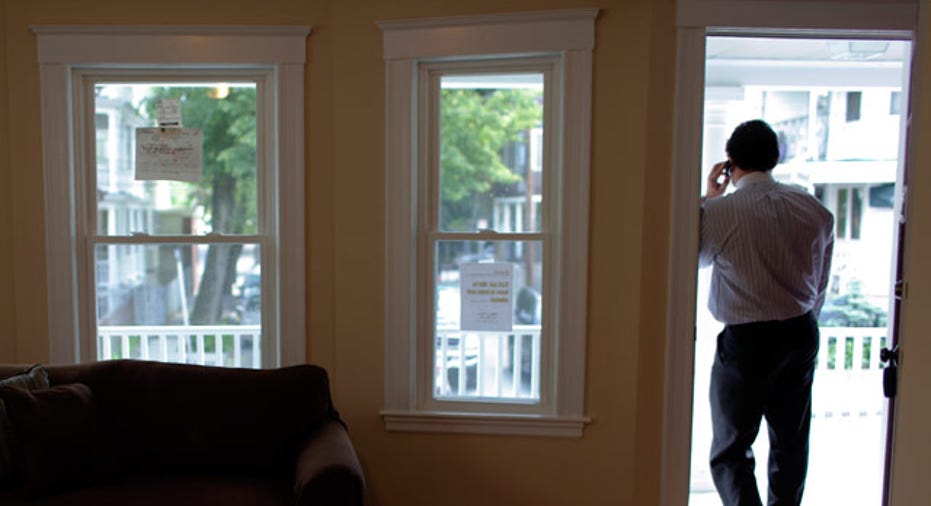The Right Way to Shop for a Mortgage

With mortgage rates at all-time lows, U.S. homeowners are refinancing in droves.
If you're among them, you already know that it's important to comparison shop; you shouldn't just work with the first lender you meet. But do you know how to comparison shop, whether it's for a conventional loan, FHA mortgage or otherwise?
Most homeowners don't.
Don't comparison shop by APR
There are lots of ways to shop for a mortgage, but comparison shopping by APR is among the worst of them.
APR stands for Annual Percentage Rate.
It's a government-mandated figure meant to show the "true cost" of financing a home over a period of 30 years. However, "true cost" is really equal to your loan size plus the interest paid over 30 years, plus closing costs required for the loan.
Some mortgage lenders will tell you that "the lowest APR is the best loan." That's untrue for three reasons:
- The first reason why you can't use APR as a comparison tool is because APR is based on a 30-year loan term with equal payments each month. Very few people keep their loans for 30 years.
- The second reason why APR fails as a comparison tool is because different lenders use different APR calculations. By including/omitting certain figures from the APR formula, a lender can manipulate its APR to look lower than the next
- And, lastly, specifically for adjustable-rate mortgages, APR fails. This is because the APR formula has to account for 30 years of payments, but with an adjustable-rate loan, payments are subject to change each year. Lenders don't know in which direction rates will go upon reset, so they guess at it. And when your APR is a "guess," it's no good.
So if you can't use APR to comparison shop a mortgage, what's the best way to shop?
Simple: isolate your variables, then compare.
Solve for a single variable
When you're looking at a Good Faith Estimate, it's easy to be overwhelmed by all the numbers. In fact, some lenders count on it. In the end, though, a Good Faith Estimate comes down to two things:
1. The interest rate the lender will give you
2. The closing costs the lender will charge you
To find your interest rate, look at the Good Faith Estimate's first page.
Midway through the page, "initial interest rate" is clearly labeled. Your closing costs are clearly labeled, too. They're identified as "Your Adjusted Origination Charges."
Beyond these two variables, nothing else is relevant. From lender to lender, the remaining "charges" should be the same; they're all "third-party" charges.
So, now that you have your two variables in isolation, pick the one that's most important to you.
Option 1: Shop by mortgage rate
If getting a certain mortgage rate is most important to you, start by choosing the rate that you want. The rate should be fair and in-line with the current market conditions.
Check out current mortgage rates in your area
Once you've settled on a rate, as you're talking with lenders, be very clear about the mortgage rate that you want. Tell the lender that you're comparison shopping and you want to know the lender fees that are associated with this particular rate.
For example, if you want a 4 percent, 30-year fixed mortgage rate, ask each lender what their "Adjusted Origination Charges" will be at that rate. Speak to four banks, you'll get four answers.
If you're looking for the lowest absolute cost, pick the lender with the lowest fees.
Option 2: Shop by mortgage fees
Getting the absolute lowest mortgage rate isn't important to everyone. Some would rather have the lowest possible closing costs.
If low-cost loans are more your flavor, it's simple to comparison shop by fees, too. Pick the maximum amount of costs you want to pay, and share that figure with your competing lenders.
For example, if you want a zero-cost 30-year fixed rate mortgage, ask each lender what the corresponding interest rate will be. The tradeoff here is that lenders will probably quote you an above-market interest rate to compensate for the lack of origination charges.
The bank with the lowest rate is your "winner."
You can't shop for two variables at once
If you shop around for a mortgage rate and fees at the same time, you leave yourself open to overpaying. Decide which is more important to you--mortgage rates or closing costs--and shop accordingly.
You'll simplify your life (and will likely get a better deal when all is said and done).
The original article can be found at HSH.com:Mortgage pro: Don't let one denial stop you



















